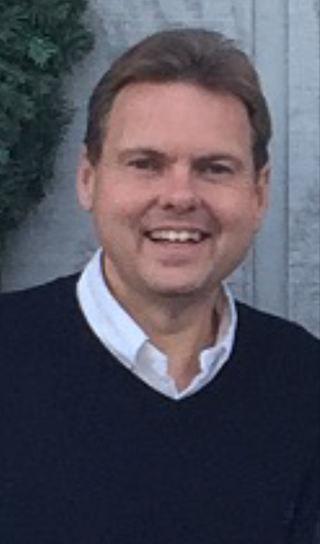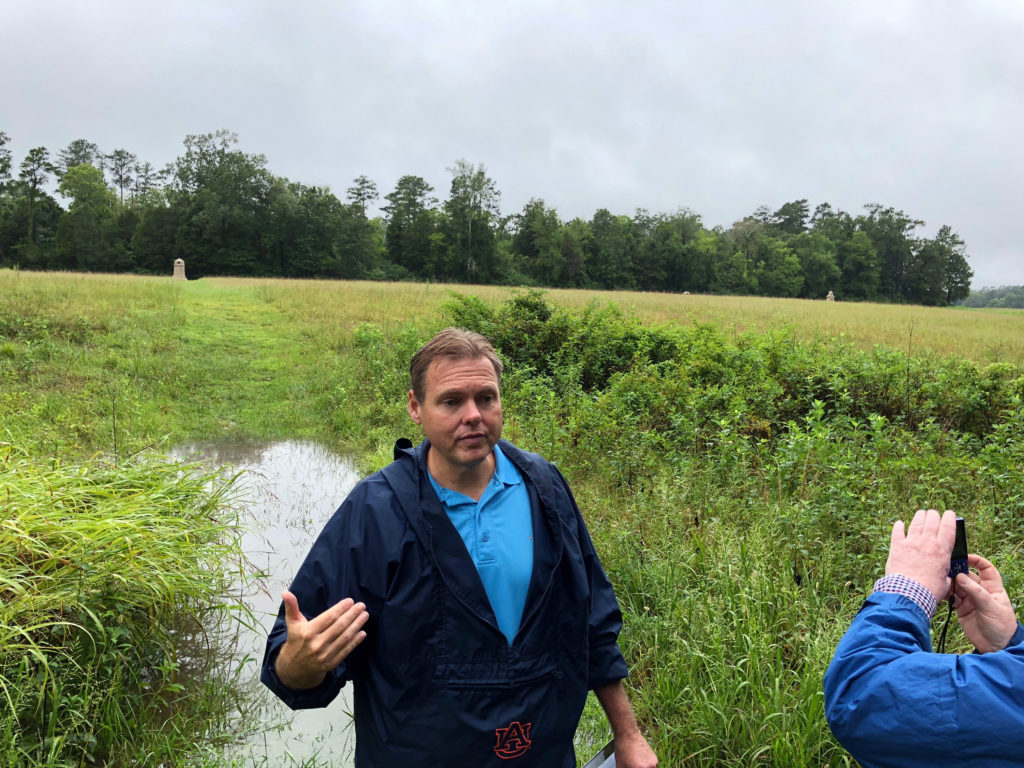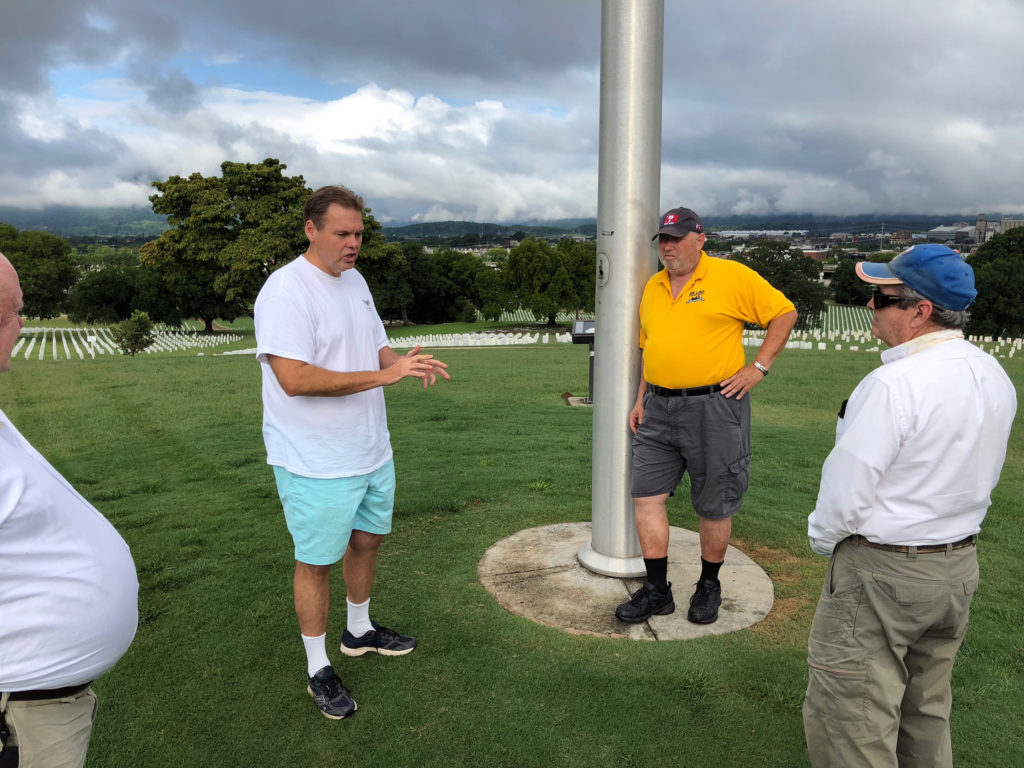Living in the shadow of a famous father can be a curse to some. For Norm Dasinger, Jr., it has definitely been a blessing. His dad—a professor at Jacksonville State University for 25 years and later the school’s Professor Emeritus of Educational Leadership—founded the Jefferson Davis Society and is also a member of the National Society of Sons of the American Revolution and the Sons of Union Veterans of the Civil War. Even more noteworthy, the elder Dasinger served as Commander-in-Chief of the Sons of Confederate Veterans when the organization worked to shed its ties to white supremacy in the mid-1990s.
None of those accomplishments were lost on Norm, Jr. To the contrary, they inspired him to blaze his own path. A longtime BGES member, Dasinger is an author, historian, and expert on the Civil War from the Southern perspective. Plus, he’s a tour guide extraordinaire. He talked to us about his life as a student of history and the current fight to preserve the nation’s past.

BGES Blog: Where and when were you born? What was your life like as a kid? Did you develop your appreciation of history during your childhood?
ND: I was born in 1966 in Dothan, Alabama. I grew up mostly in Jacksonville, Alabama. My father began an in-depth genealogical study of many of our family lines beginning in the 1970s. He discovered several CSA soldiers and a few USA soldiers. As we learned more about their units and battles, I was captured by history and the Civil War.
BGES Blog: You mentioned your father’s genealogical study. Is he the source of your love of history? How did you feed and nurture it over the years?
ND: My father was a longtime college educator, and is well known for not only his influence in higher education but also as the Commander-in-Chief of the Sons of Confederate Veterans from 1994 to 1996. He is still active in local historical groups. My family, including my sons, can trace their interest in history—of all types and eras—back to my father.
BGES Blog: You’ve been involved with BGES for quite some time, including a stint on the board. Tell us about that.
ND: My primary responsibilities were community outreach and strategic educational programming. I helped to develop and grow the BGES Dispatch. I also participated in the effort to accumulate as many email contacts as possible. The goal was to reach out to as many interested people with the message of BGES and its effort to “Save the Civil War.”
BGES Blog: You’ve also led plenty of tours for BGES and other organizations, usually in Alabama, Georgia, or Tennessee. What do you enjoy about this role?
ND: I enjoy passing on historical information about the areas near where I live. There are many events in American history that took place in Alabama or nearby. As I learn more about where those events took place, it is my honor to physically take others to these sites and explain as to what occurred there.
BGES Blog: Tell us about your upcoming BGES tour—All’s Fair in War, Streight’s Raid & Forrest’s Bluff—with Brian Steel Wills.
ND: The Forrest Streight Raid is an exciting story of bold ideas, the chase, the defenders, the capture and the leaders on both sides. Brian Wills is the foremost authority of everything Forrest. Having him in the van talking about the man and answering questions is irreplaceable. One of the most pristine Civil War sites in America is on this tour. Unchanged from 1863, the ford that Emma Sansom showed Forrest is just amazing. It is a time-travel site like Appomattox. You feel like you are there during the Civil War.

BGES Blog: As we know, our nation is facing a reckoning on race and how we interpret our complicated history. What are your thoughts?
ND: Don’t take down monuments; put more up. The city of Gadsden, where I live, is going to take down the Emma Sansom monument. Instead of doing that, why not add a monument to Jimmy Hood, the first black man to integrate the University of Alabama? He was from Gadsden. Remember all our history not just selected parts. Once the markers or reminders are gone, within a generation the event will have simply never happened.
BGES Blog: As a historian, how do you see your role in this struggle?
ND: I have knowledge about people and events and the location of those events that I need to share with others. The markers and signs denoting history and the location of that history are being removed. I have always tried to emulate the late Ed Bearss—talk to people about the topic and then show them the site where it took place.
We can no longer take for granted that our traditional American history will exist for future generations. As men and women that possess this valuable knowledge, we have to do what we can to help make sure our fellow citizens learn American history by associating with living historians. There is a growing hunger by Americans to know about their nation’s past and local area’s past. It’s important to note that BGES is the last nationwide corporate entity that accurately meets this desire.

You must be logged in to post a comment.